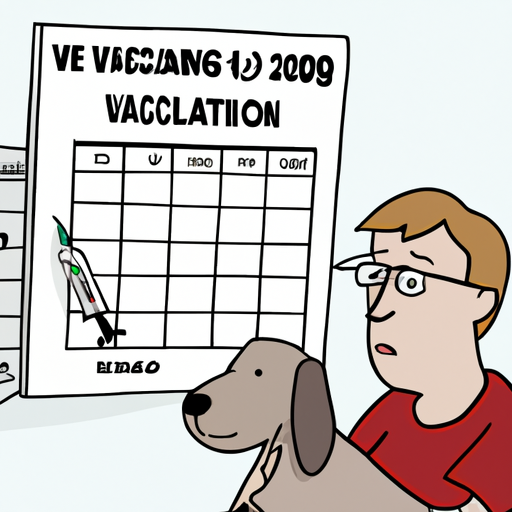As a pet owner, you know how important it is to keep your furry friend healthy and safe. Vaccinations play a critical role in protecting dogs from various diseases, one of which is leptospirosis, commonly known as lepto. But how often do dogs need a lepto vaccine? Let’s dive into this topic and find out!
Table of Contents
- Understanding Leptospirosis
- Importance of Lepto Vaccine
- Vaccine Schedule
- The Need for Boosters
- Risks and Side Effects
- FAQs
Key Takeaways
- Leptospirosis is a dangerous bacterial disease affecting dogs, and can be transmitted to humans.
- Regular vaccination is essential to protect your dog from lepto.
- The initial lepto vaccine is usually given to puppies at 12 weeks, with a booster shot at 15 weeks.
- Annual booster shots are recommended to maintain immunity.
- The lepto vaccine, like any vaccine, might have some side effects, but these are generally mild and temporary.
Understanding Leptospirosis
Leptospirosis is a bacterial disease that affects animals and humans alike. It’s caused by the bacteria Leptospira and is more prevalent in areas with high rainfall and warm climates. Dogs can contract leptospirosis through contact with urine from infected animals or by drinking, swimming in, or walking through contaminated water.
The symptoms of leptospirosis in dogs can vary from mild signs of illness, like fever and muscle pain, to more severe conditions like kidney or liver failure. Therefore, preventing this disease is vital. And that’s where the lepto vaccine comes in.
Importance of Lepto Vaccine
The lepto vaccine is a critical tool in preventing this potentially fatal disease. It stimulates your dog’s immune system to produce antibodies against Leptospira, helping to prevent infection or reduce the severity of the disease.
Onetopdog1 provides an in-depth guide on various canine vaccines, including the lepto vaccine.
Vaccine Schedule
According to the American Animal Hospital Association2, the initial lepto vaccine is given to puppies at around 12 weeks of age, with a booster shot three to four weeks later, typically at 15 weeks.
| Age of Puppies | Vaccine |
|---|---|
| 12 weeks | Initial Lepto Vaccine |
| 15 weeks | Booster Shot |
The Need for Boosters
After the initial vaccination and booster, an annual booster shot is recommended to maintain your dog’s immunity against leptospirosis. In areas where leptospirosis is prevalent or in dogs with a higher risk of exposure, veterinarians might recommend boosters every six months.
Risks and Side Effects
Like any vaccine, the lepto vaccine can have side effects. Most are mild and short-lived, such as soreness at the injection site, fatigue, or a mild fever. Serious side effects are rare but can include allergic reactions.
Onetopdog3 has a comprehensive article on understanding and managing vaccine side effects in dogs.
Frequently Asked Questions
-
Is the lepto vaccine necessary for all dogs?
It depends on your dog’s lifestyle and where you live. Discuss with your vet to make an informed decision. -
Can humans get leptospirosis from dogs?
Yes, leptospirosis is a zoonotic disease, which means it can be transmitted from animals to humans. -
Can the lepto vaccine cause lepto in my dog?
No, the vaccine is made from killed bacteria and cannot cause the disease.
In conclusion, the frequency of the lepto vaccine depends on various factors like your dog’s lifestyle, age, and the prevalence of leptospirosis in your area. Regular vaccinations, as advised by your veterinarian, can keep your dog protected from leptospirosis.
Remember, as a caregiver, your pet’s health is in your hands. Stay informed and take the necessary precautions to keep your furry friend safe and healthy.
For more information on dog health and vaccines, visit Onetopdog4.



